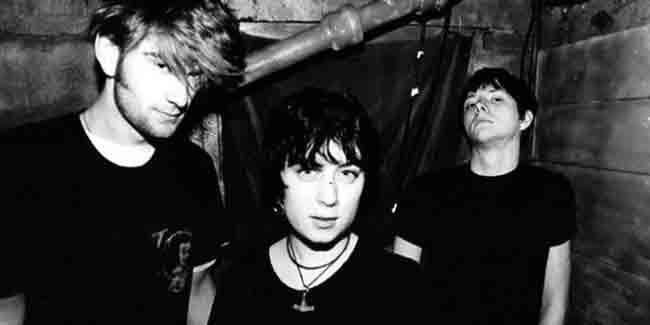
Most people are embarrassed, at least a little, about what they did and who they were in high school. This goes doubly for any music you make. It’s normally around that time that, if you picked up guitar or drum lessons in middle school, you’re finally figuring out how to really play your instrument, buying the kinds of distortion pedals you need to sound like your favorite bands and getting at least a little bit of attitude. It’s probably also around the time you’re starting to figure out songwriting, so that everything you write sounds better than the last, and you start developing an inflated image of how good you actually sound. At best, you’ll probably be a good copy of the bands you listen to; at worst, you’re a Christian nu-metal band.
Not everyone suffers, however, and sometimes people even make it out with something worthwhile. Olympia/Tumwater’s Unwound, who were on the bleeding edge of post-hardcore noise in the 1990s and early 2000s, began as rotating group of teens making joke bands in their garages and basements. But, somehow, they broke out.
That early transition is documented on Kid is Gone, a triple-LP set released via the Numero Group, a Chicago label best known for its meticulous compilations of old soul recordings and forgotten rock tunes. This isn’t the first indie band that TNG has given the deluxe-reissue treatment to: in 2012, they re-released all of slowcore giants Codeine’s records, stuffed with demos, live tracks, and packaged beautifully, with glossy booklets full of revealing liner notes. Kid benefits from the same treatment, with 16 pages of writings, drawings, pictures, and credits that meticulously detail the early development of the band from jokey high schoolers to honest-to-god musicians, with a slight idea of what they’re doing.
The reading alone should be mandatory for all fans of Unwound, but it’s merely a companion to the tracks featured on Kid. Early recordings, some written when the group still went by Giant Henry, are hardly recognizable from records like Challenge For a Civilized Society or The Future of What, or even later tracks on the same LP. “Bionic” and “Lying at Best” are pure melodic hardcore, in the style of Hot Water Music or Jawbreaker, essentially contemporaries to Unwound at this point. Vocals are clear and sit high in the mix, guitars are melodic, and there is essentially no dissonance to be found. For a fan of Unwound who knows where they ended up, it’s simply weird to hear their origins as a pretty good band of high school kids.
If this was all Unwound accomplished, they would probably have been forgotten by anyone outside of Olympia, as these are the songs of a decent local band, better than most. But thankfully for all of us, something changed, through practice or skill or drive, because even by the end of the first LP, covering all of Unwound’s pre-1992 recordings, Kid documents a very different group, scraping guitars over a vicious rhythm section on “Caterpillar” and climaxing the seven-minute “Love and Fear” with a Fugazi-style noise breakdown.
But even by LP2, covering the band’s first album recording session, Unwound is tighter, more vicious, snarling out with lockstep clarity. Justin Trosper’s guitar employs screaming harmonics, galloping rhythms, and squalling dissonance, and Vern Rumsey shakes the earth to hold it together on bass. Standard song forms are mostly abandoned, with very few discernible choruses, just hard-hitting unison hits, like on “Understand & Forget”. As compared to the first disc, an Unwound fan would easily recognize the band playing here. Still, there is transition: “Fingertips” is, comparatively, soft and melodic, and before “You Bit My Tongue” goes off the rails it sounds like those early Giant Henry recordings filtered through the Nation of Ulysses. It’s good, but certainly not the best this band would get.
Kid concludes with a disc of live recordings, possibly the least vital part of the set for those not already Unwound diehards. But then again, who else is a $40 deluxe vinyl boxset aimed at, anyway? These are far from the best songs by the band, which would later climb heights that Unwound could hardly have imagined for itself at this point in time. That they nonetheless scan as vital, as opposed to the junk and ephemera spawned by countless high school bands, perhaps proves something that didn’t really need proving: Unwound was a group to be reckoned with, even at a young age. What they did mattered; but in the future, it would matter even more.

![Call for Papers: All Things Reconsidered [MUSIC] May-August 2024](https://www.popmatters.com/wp-content/uploads/2024/04/all-things-reconsidered-call-music-may-2024-720x380.jpg)



